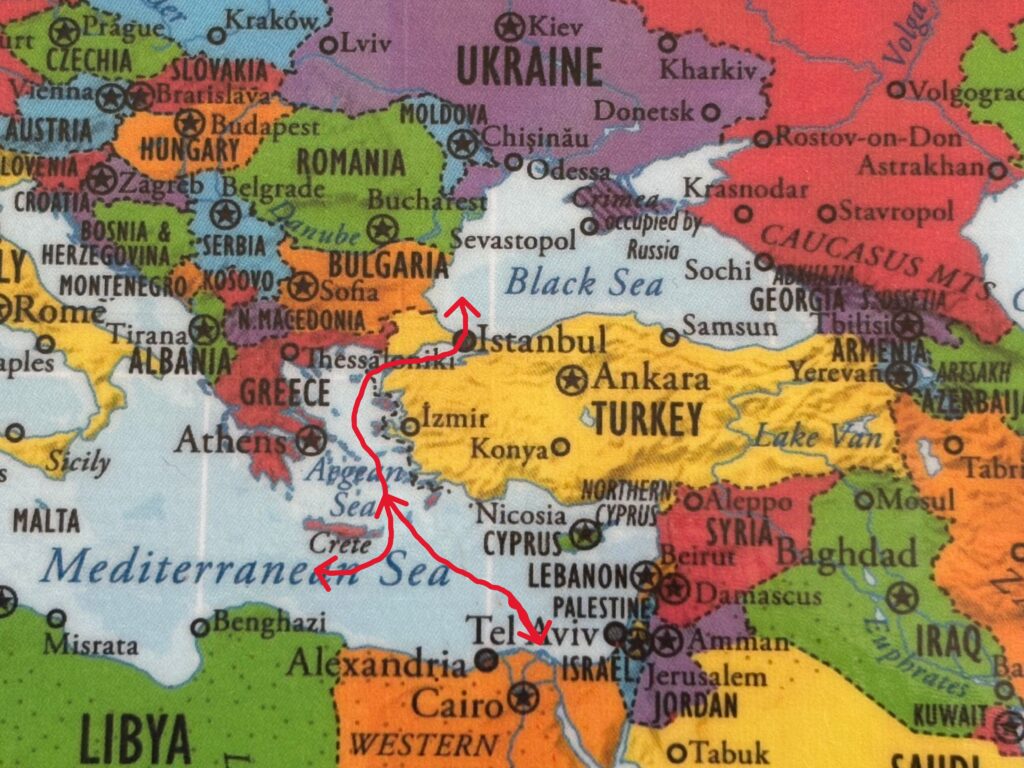#1 Bosporus Strait (Turkey’s lock & keys to the Black Sea

FLASHPOINT NOW 🔥
Where continents almost touch, and global power collides in a narrow waterway. The Bosporus is Turkey’s lock and key — the passage that decides who enters or exits the Black Sea. At its tightest, just 700 meters wide, yet it funnels Russia’s fleets, NATO’s patrols, and Ukraine’s grain into the Mediterranean.
This gateway is more than geopolitics — it is the breadbasket’s artery and the fuel corridor. Grains and fertilizers flow south into Africa and westward into Europe, feeding populations and stabilizing industries. At the same time, crude oil and petroleum products stream through, making fuels the most vulnerable cargoes — stalked by piracy in chokepoints and exposed in conflict zones. Every vessel navigating these bends carries not just cargo, but the stability of nations.
Geography – A System of Narrow Passages:
- A narrow, twisting corridor linking the Black Sea to the Mediterranean Sea.
- Only 700 meters at its tightest turn.
- Strong currents running in opposite directions — surface outflow, deep inflow.
- Sharp bends that force large vessels to maneuver at low speed.
- Urban Istanbul on both sides — millions living along the shoreline.
- Fully Turkish territory coast to coast — no shared sovereignty.
- No alternative route for Black Sea nations; this is the only exit to the Mediterranean.
Maritime Hazards & Modern Challenges:
- Narrow channel with sharp bends that force large vessels to maneuver at low speed.
- Strong, opposing currents — surface outflow toward the Aegean, deep inflow toward the Black Sea.
- Sudden wind shifts and fog that reduce visibility without warning.
- Heavy civilian ferry traffic crossing at right angles to deep‑draft shipping lanes.
- Urban Istanbul on both sides — dense population, constant small‑craft movement.
- Limited room for error: any mechanical failure becomes an immediate grounding or collision risk.
- Tankers and bulk carriers navigating close to shore infrastructure, bridges, and residential districts.
Key Facts & Importance:
- Traffic volume: Over 50,000 vessels annually, ~130 ships per day.
- Energy artery: 3–4% of global crude and petroleum trade passes through.
- Breadbasket lifeline: Grain exports from Ukraine and Russia, plus fertilizers, flow into Africa and Europe.
- Montreux Convention: Signed in 1936, it guarantees freedom of passage for merchant vessels in peacetime and restricts warship movements.
- Reality check: Maritime law here is largely irrelevant. Nations act on their own terms, interpreting or ignoring the Convention when it suits their interests. Global frameworks like the UN or IMO have little enforcement power in these straits.
Geopolitical Considerations: Turkey’s leverage
- Turkey balances NATO membership with ties to Russia.
- Russia seeks unfettered access; Ukraine depends on the straits for grain exports.
- Every interpretation of U.N. Montreux or common IMO law shifts the balance of maritime and energy security.
- Underlying truth: Rules exist on paper, but practice is dictated by national will.
